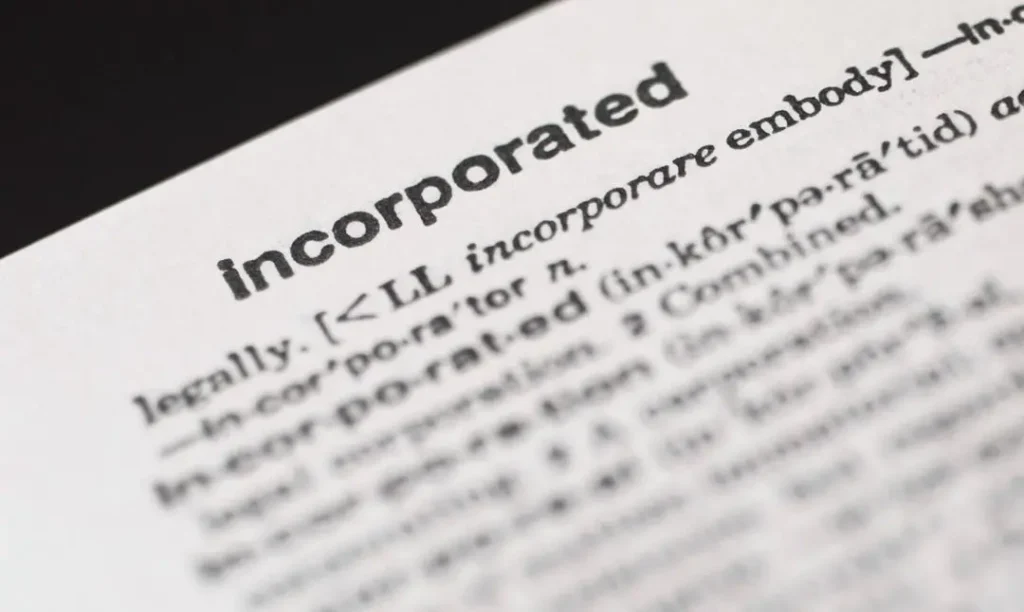Table of Contents
Incorporation Lawyers: Why You Need Legal Help for Your Business Incorporation
Incorporating a business can be one of the most important steps in creating a successful and legally protected venture. Whether you are starting a new business or looking to restructure an existing one, incorporation offers numerous benefits, including liability protection, tax advantages, and the ability to raise capital more easily. However, navigating the complexities of the incorporation process can be challenging. This is where incorporation lawyers come in. At SK Legal, our experienced lawyers help guide you through the incorporation process, ensuring everything is done correctly and efficiently.
In this post, we’ll explore why hiring an incorporation lawyer is essential, the different types of corporate structures you can choose from, and the process of incorporating your business in Canada.
What is Incorporation?
Incorporation is the process of creating a legal entity separate from its owners. This new entity, known as a corporation, can own assets, incur liabilities, and engage in business activities. The owners, or shareholders, enjoy limited liability protection, meaning their assets are protected if the business incurs debt or is sued.
There are two primary types of corporations in Canada: federal and provincial. A federal corporation allows you to operate across the country, while a provincial corporation limits your operations to one province. Depending on your business goals, an incorporation lawyer can help you decide which option is best suited for your needs.
Why Hire an Incorporation Lawyer?
While incorporating a business may seem straightforward, several legal, financial, and tax considerations must be addressed. Although some entrepreneurs attempt to handle incorporation themselves or use online services, these approaches can leave you exposed to unnecessary risks. Here’s why working with an incorporation lawyer is crucial:
- Customized Advice: Every business is unique. An incorporation lawyer ensures that your corporation is structured to meet your specific needs, from drafting customized articles of incorporation to determining the best share structure.
- Liability Protection: Incorporation provides limited liability protection for shareholders. A lawyer can make sure that this protection is correctly implemented, helping safeguard your assets.
- Tax Optimization: Corporate tax laws are complex. An incorporation lawyer can help you understand the tax implications of different corporate structures, ensuring that your business is set up to maximize tax efficiency.
- Compliance: An incorporation lawyer ensures that your business complies with all relevant provincial and federal laws. This includes filing the correct paperwork and maintaining the necessary corporate records to avoid penalties or legal complications down the road.
- Shareholder Agreements: If your corporation has multiple shareholders, a well-drafted shareholder agreement is essential. It outlines the rights and responsibilities of each shareholder, minimizing the risk of disputes in the future.
- Future-Proofing Your Business: Incorporation lawyers think ahead. They help you structure your business in a way that makes future growth, expansion, or selling the business easier.
The Different Types of Corporate Structures
When incorporating a business in Ontario or Canada, it’s important to choose the right corporate structure. The structure you select will determine your legal obligations, tax rates, and how your business is managed.
Sole Proprietorship
A sole proprietorship is the simplest form of business ownership, where the owner and the business are the same legal entity. This structure doesn’t offer the limited liability protection of a corporation. While it’s easy to set up and manage, a sole proprietorship leaves the owner personally liable for any business debts.
Partnership
In a general partnership, two or more individuals share ownership of the business. Each partner is personally liable for the debts and obligations of the business. A limited partnership allows for limited liability for some partners, typically those who do not take an active role in managing the business.
Corporation
A corporation is a separate legal entity from its shareholders, offering limited liability protection. This means shareholders are not personally responsible for the business’s debts or legal issues. Corporations also enjoy tax advantages, such as lower corporate tax rates, and the ability to raise capital by issuing shares.
Limited Liability Partnership (LLP)
A limited liability partnership provides flexibility and liability protection, especially for professionals in fields like law and accounting. Partners are only responsible for their actions, and not for the actions of other partners.
Professional Corporation
This structure is typically used by professionals, such as doctors, lawyers, and accountants, who need to incorporate but still comply with their regulatory bodies.
The Incorporation Process
The incorporation process involves several steps that an experienced incorporation lawyer can help you navigate:
- Choosing a Corporate Name: You need to select a unique name for your corporation. An incorporation lawyer can conduct a name search to ensure your chosen name is available and doesn’t infringe on any existing trademarks.
- Filing Articles of Incorporation: These are legal documents that outline the corporation’s purpose, structure, and share distribution. A lawyer can draft and file these articles with the appropriate government body.
- Setting Up Shareholders and Directors: The corporation needs to appoint at least one director and establish its share structure. This includes determining how many shares will be issued, what types of shares will exist, and any shareholder rights.
- Creating Corporate By-Laws: Corporate by-laws define the rules for managing the corporation. A lawyer can draft these documents, ensuring they comply with legal requirements.
- Registering for Taxes: Depending on your business activities, you may need to register for various tax accounts, such as the Goods and Services Tax (GST) or Harmonized Sales Tax (HST). A lawyer can assist you in setting up these accounts and ensuring tax compliance.
- Drafting Shareholder Agreements: If your corporation has multiple shareholders, a shareholder agreement is critical. It outlines how the corporation will be run and what happens in case of disputes, death, or sale of shares.
- Maintaining Corporate Records: Corporations are required to maintain certain records, including minutes of meetings, resolutions, and financial statements. Your lawyer can help you establish a system for keeping these records up to date.
Why Incorporate with SK Legal?
At SK Legal, we specialize in helping entrepreneurs and businesses navigate the complexities of incorporation. Our experienced incorporation lawyers will guide you through every step of the process, ensuring your business is set up for long-term success. Whether you’re looking to incorporate federally or provincially, we provide tailored legal advice to meet your specific needs. Contact us today for a consultation and learn how we can help your business thrive.

What is the role of an incorporation lawyer?
An incorporation lawyer helps businesses with the legal process of becoming a corporation, ensuring compliance with laws, drafting essential documents, and providing legal advice.
Do I need a lawyer to incorporate my business?
While it’s not mandatory, hiring an incorporation lawyer helps avoid mistakes and ensures the business is set up to maximize liability protection and tax benefits.
What are the benefits of incorporating?
Incorporation offers limited liability, tax advantages, increased credibility, and easier access to capital.
Can I incorporate my business myself?
Yes, but doing so without legal advice can lead to costly mistakes. An incorporation lawyer ensures your business is correctly structured and legally compliant.
What documents are needed for incorporation?
Key documents include articles of incorporation, corporate by-laws, shareholder agreements, and resolutions.
- Contract Law Across Countries (Canada and United States)
- Cross Border Services (United States and Canada)
- SK Legal – Contingency Engagements for 100% Success – Serving all of British Columbia and Alberta
- Navigating Personal Injury Claims with SK Legal as Your Trusted Lawyer in Alberta
- SK Legal: Your Trusted Lawyer for Personal Injury Claims in Alberta and British Columbia

